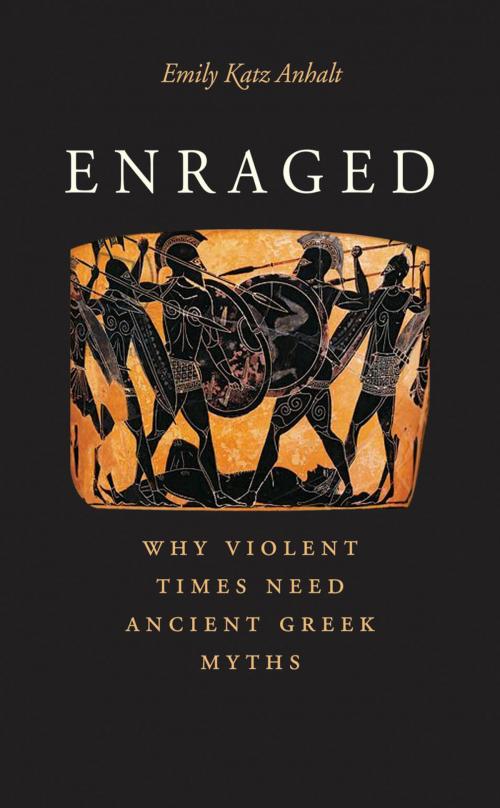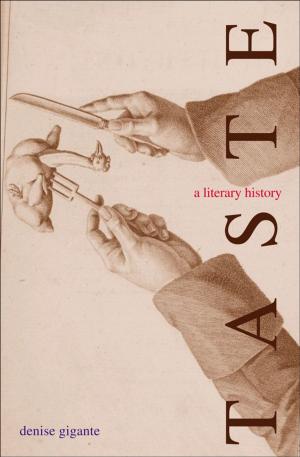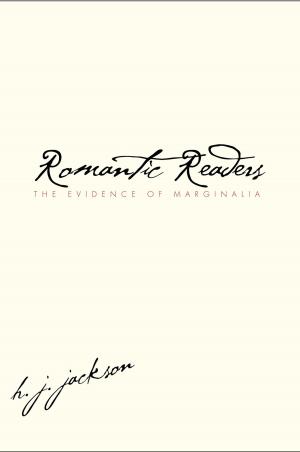Enraged
Why Violent Times Need Ancient Greek Myths
Fiction & Literature, Literary Theory & Criticism, Ancient & Classical, Nonfiction, Social & Cultural Studies, Social Science, Folklore & Mythology, History, Modern| Author: | Emily Katz Anhalt | ISBN: | 9780300231762 |
| Publisher: | Yale University Press | Publication: | August 22, 2017 |
| Imprint: | Yale University Press | Language: | English |
| Author: | Emily Katz Anhalt |
| ISBN: | 9780300231762 |
| Publisher: | Yale University Press |
| Publication: | August 22, 2017 |
| Imprint: | Yale University Press |
| Language: | English |
An examination of remedies for violent rage rediscovered in ancient Greek myths
Millennia ago, Greek myths exposed the dangers of violent rage and the need for empathy and self-restraint. Homer’s Iliad, Euripides’ Hecuba, and Sophocles’ Ajax show that anger and vengeance destroy perpetrators and victims alike. Composed before and during the ancient Greeks’ groundbreaking movement away from autocracy toward more inclusive political participation, these stories offer guidelines for modern efforts to create and maintain civil societies. Emily Katz Anhalt reveals how these three masterworks of classical Greek literature can teach us, as they taught the ancient Greeks, to recognize violent revenge as a marker of illogical thinking and poor leadership. These time-honored texts emphasize the costs of our dangerous penchant for glorifying violent rage and those who would indulge in it. By promoting compassion, rational thought, and debate, Greek myths help to arm us against the tyrants we might serve and the tyrants we might become.
Millennia ago, Greek myths exposed the dangers of violent rage and the need for empathy and self-restraint. Homer’s Iliad, Euripides’ Hecuba, and Sophocles’ Ajax show that anger and vengeance destroy perpetrators and victims alike. Composed before and during the ancient Greeks’ groundbreaking movement away from autocracy toward more inclusive political participation, these stories offer guidelines for modern efforts to create and maintain civil societies. Emily Katz Anhalt reveals how these three masterworks of classical Greek literature can teach us, as they taught the ancient Greeks, to recognize violent revenge as a marker of illogical thinking and poor leadership. These time-honored texts emphasize the costs of our dangerous penchant for glorifying violent rage and those who would indulge in it. By promoting compassion, rational thought, and debate, Greek myths help to arm us against the tyrants we might serve and the tyrants we might become.
An examination of remedies for violent rage rediscovered in ancient Greek myths
Millennia ago, Greek myths exposed the dangers of violent rage and the need for empathy and self-restraint. Homer’s Iliad, Euripides’ Hecuba, and Sophocles’ Ajax show that anger and vengeance destroy perpetrators and victims alike. Composed before and during the ancient Greeks’ groundbreaking movement away from autocracy toward more inclusive political participation, these stories offer guidelines for modern efforts to create and maintain civil societies. Emily Katz Anhalt reveals how these three masterworks of classical Greek literature can teach us, as they taught the ancient Greeks, to recognize violent revenge as a marker of illogical thinking and poor leadership. These time-honored texts emphasize the costs of our dangerous penchant for glorifying violent rage and those who would indulge in it. By promoting compassion, rational thought, and debate, Greek myths help to arm us against the tyrants we might serve and the tyrants we might become.
Millennia ago, Greek myths exposed the dangers of violent rage and the need for empathy and self-restraint. Homer’s Iliad, Euripides’ Hecuba, and Sophocles’ Ajax show that anger and vengeance destroy perpetrators and victims alike. Composed before and during the ancient Greeks’ groundbreaking movement away from autocracy toward more inclusive political participation, these stories offer guidelines for modern efforts to create and maintain civil societies. Emily Katz Anhalt reveals how these three masterworks of classical Greek literature can teach us, as they taught the ancient Greeks, to recognize violent revenge as a marker of illogical thinking and poor leadership. These time-honored texts emphasize the costs of our dangerous penchant for glorifying violent rage and those who would indulge in it. By promoting compassion, rational thought, and debate, Greek myths help to arm us against the tyrants we might serve and the tyrants we might become.















